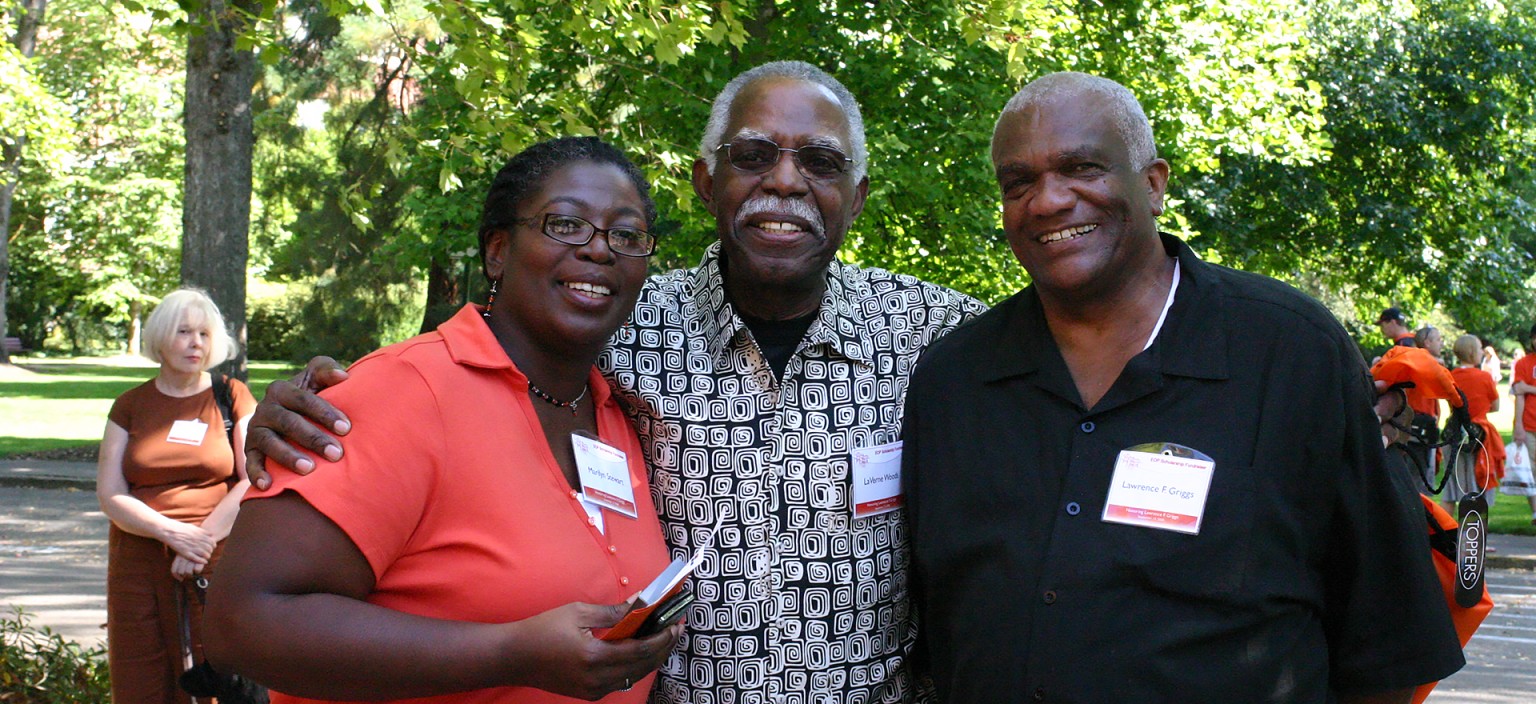The Oregon State University Black Alumni and Friends Network wishes to honor the memory of Lawrence F. Griggs.
By Jordan Friedman
The Oregon State University Black Alumni and Friends Network wishes to honor the memory of Lawrence F. Griggs, a longtime director remembered by alumni for his devotion to helping underrepresented students thrive on campus. For years, Griggs, Ph.D. ’78, led the university’s Educational Opportunities Program (EOP), which was created in 1969 to support students who historically have been denied equal access to higher education.
Griggs was hired to work for the EOP in 1974 after earning a doctorate in College Student Services Administration, and he served as the program’s director from 1986 to his retirement in 2008. At 76 years old, he died in his home in Corvallis on Sept. 13. A memorial service will be held at a later date.
Janet Nishihara, current executive director of the EOP, met Griggs in 1981, when she started working at EOP after earning her master’s degree at OSU. She ultimately worked with Griggs for more than two decades. She says Griggs devoted his career to ensuring that the school — and the country as a whole — did a better job of supporting Black students and other students of color in finding their potential and contributing back to society.
“He served a big role in telling all students — not just Black students, but all students, in the program especially — that they could do it, and what is it that they needed to help them do it,” Nishihara says.
Angel Harris, past president of the Corvallis-Albany NAACP chapter, enrolled at Oregon State in 1995 as a pre-nursing student while Griggs was the EOP director. For her, the EOP became a “home away from home, a family,” where she felt a sense of belonging as a Black and first-generation student.
It was the support of Griggs and EOP staff, she says, that gave her the confidence to pursue nursing, a field she worked in for more than 18 years. She’s now about to start a master’s degree program in the discipline.
“He didn’t let things bother him too easily, and when you’re a student, you need to see people like that,” Harris says. “Because there are so many things going on on our university campus.”
She adds, “To have a leader like Dr. Griggs, who didn’t allow circumstances and other people’s attitudes to catch him off guard, but to really stand strong, was really inspirational to me.”
His door was always open, Harris says, and she will always remember his passion and dedication to the OSU community. He was quiet yet approachable, and she continued to see him at university events even after he retired.
“He was just a father figure to so many,” Harris says. “He was one who led by allowing other people to lead,” always encouraging other staff to do their best to help the students.
Griggs’ work wasn’t limited to directly supporting students. He also served on OSU’s Faculty Senate Executive Committee, helped launch the school’s Association of Faculty and Staff for the Advancement of People of Color, and created diversity trainings for housing and dining staff as well as local police, among other groups.
Nishihara fondly recalls Grigg’s laugh, his positive attitude, and his ability to find and recruit staff members who were equally as passionate about EOP’s mission.
“I think he could have gone anywhere, and he chose to stay at Oregon State,” Nishihara says, “which says, I think, a lot about him really valuing the university and the potential that he saw in terms of what it could be for students.”

